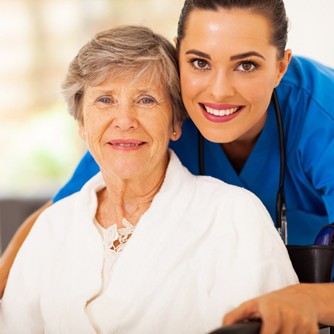April is National Stress Awareness Month. This is a great time to address the issues in your life that are causing anxiety and learn how to cope with them more effectively in the future. Caregivers have a very unique job and therefore a particular set of stressors that may require attention. Learn more about stress and how to handle it here:
Turn to technology
Gone are the days when caregivers had to write down every instance and dosage of a resident’s medication to keep track. Instead, they can use technology like apps to schedule and even send themselves reminders to administer medication and address other senior needs. Using tools like pill-reminder applications, calendars and spreadsheets can greatly reduce your stress by making it much easier to track how and when you care for your loved one.
Talk with other caregivers
It’s tempting to talk with family and friends about caregiving. While this can sometimes be a way to vent frustrations, only people who have administered care to someone really know how to relate to what you’re going through. Consider joining a support group for people who are helping elderly parents. Here you can find kindred spirits that are familiar with the positives and negatives of caregiving. Plus, other members may be able to offer help and guidance on topics your family and friends know nothing about, like dealing with medical emergencies or addressing senior hygiene.
Do some research
One of the most stressful parts of caregiving for many people is handling health scares. If you are caring for your elderly parents, for example, you likely haven’t undergone any type of training. Instead, this task has fallen into your lap. To be more prepared, and reduce your stress levels, consider doing some research. Go online to learn about any medical conditions your parents have and look up information about medications they are taking. Talk to their doctors to understand their health histories and get an idea of what you need to do at home to help out. Also consider taking classes that are relevant to caring for an elderly person. You may need to help a senior be more mobile, for example, and learning ways to move a person in and out of a wheelchair or to and from the bed can be very helpful. Becoming CPR certified may also be a good option as it will help you prepare for an emergency. Many hospitals, assisted living communities and other healthcare providers offer classes and advice on these topics.

Take time for yourself
Being knowledgeable about the person you’re caring for and his or her conditions will help you feel more in control, but that doesn’t mean you’ll be relaxed. To reduce stress, make time for yourself each day. Whether that means getting up half an hour earlier to read a book or taking a walk by yourself midday, these little moments away can offer you a chance to breathe and reestablish calm. Self-care is an important part of caregiving as it’s easy to forget about your needs when you’re addressing those of an elderly individual.
If you found an error, highlight it and press Shift + Enter or click here to inform us.



